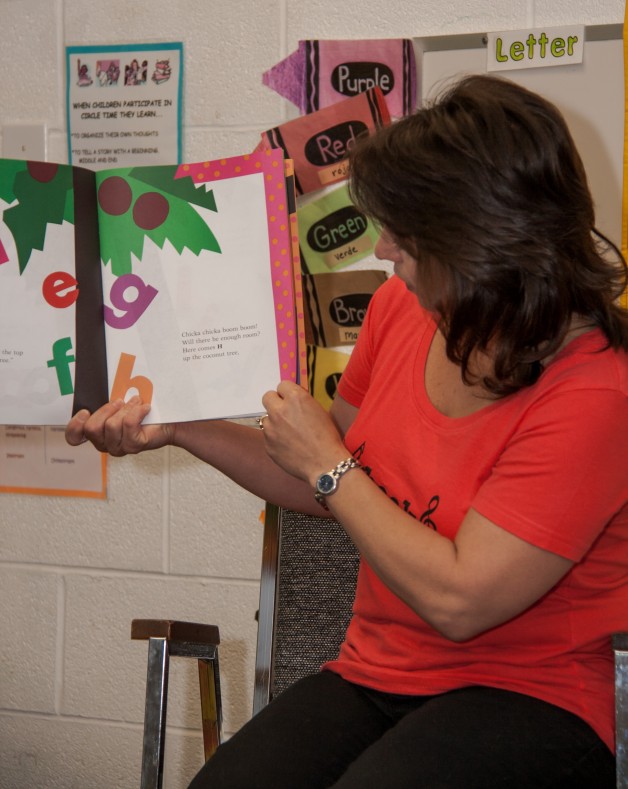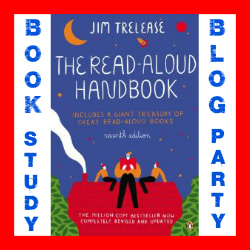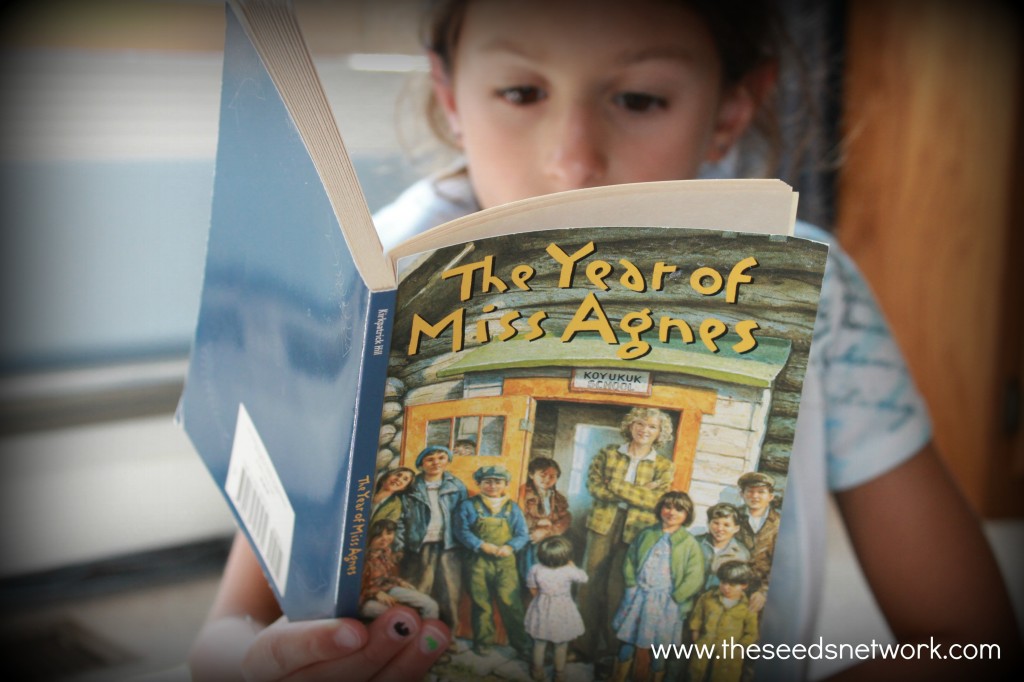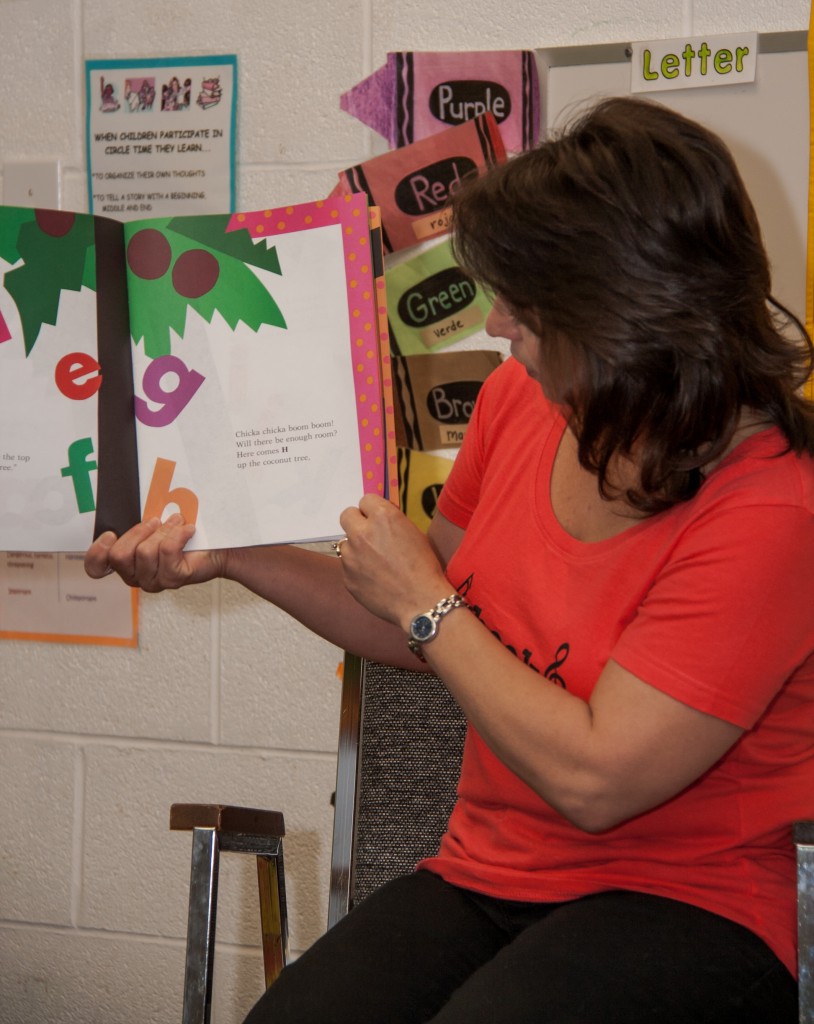I am thoroughly enjoying the summer book study of “The Read-Aloud Handbook: Seventh Edition” by Jim Trelease. It hits me as both a parent and a teacher. I can relate to some of the questions that parents ask of Mr. Trelease about reading aloud to children … AND it reaffirms that all the reading aloud that I have done in the classroom and with Book & Boogie really does make a difference.
As a parent
I have 3 children of varying stages of their growth (elementary, high school and *GASP* heading off to college). One common thing I did with each, we started reading to them all as infants. It was a quiet and relaxing way to end the day and created a predictable routine for bedtime. I love when Mr. Trelease describes how “the love of reading [is] nurtured by these parent-child experiences“, and that it helps to build a child’s verbal skills as the child grows.
The downside of my experiences with reading to my children, is in making the mistake that once they get to the upper elementary grades; the reading before bedtime routine became more of an individual activity for them (rather than a shared parent-child activity).
“But reading alone and reading aloud are not mutually exclusive.” — [pg 63]
What a missed opportunity! Mr. Trelease so obviously points out that …
“…kids usually listen on a higher level than they read.”
This is my “Duh” moment! Of course they do! How much of our conversations with children involve words and language that they verbally understand, but may not be able to read for themselves when written on paper?
“Listening comprehension feeds reading comprehension.” — [pg 67]
Mr. Trelease has some excellent examples of how this works in his book. And it has challenged me as the busy parent to make reading aloud to my youngest a priority again, rather than just something we do on occasion. [And we have had the perfect opportunity to do that this summer with the Summer Book Exchange we participated in.]
As an educator
Mr. Trelease talks about how children’s attention spans for reading time is based on their experience with books. So as educators, the more opportunities we give children to experience story time (either as a large group, small group or one-on-one) … their attention span for that activity will grow. So yes, it IS important to attempt to read to that group of restless preschoolers!
Follow the book study
Read the Chapter 2 review over at Pre-K Pages … and feel free to share your thoughts or personal stories about when to start and end reading aloud in the comments below. Bloggers can also link up using the linky below!
I have also put together a post with a timeline for the book study, so check that out as you read along with us!






Leave a Reply